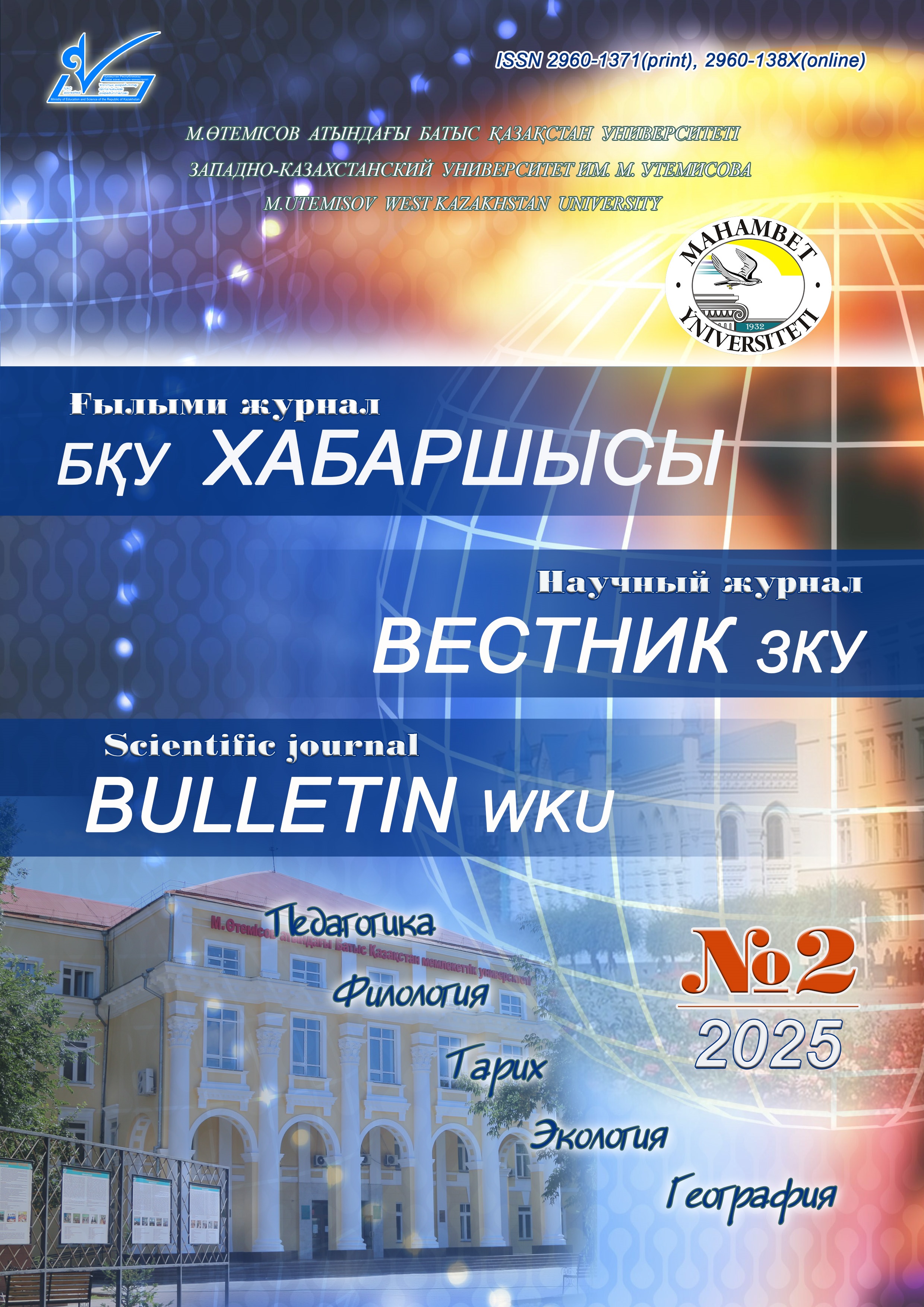LOW-CARBON DEVELOPMENT STRATEGY BASED ON PRACTICEORIENTED GEOGRAPHY ASSIGNMENTS FOR 11TH GRADE STUDENTS
Abstract
The article discusses approaches to the formation of environmentally
oriented thinking among high school students through practice-oriented geography assignments.
The key aspects of low-carbon development, methods of studying it in the educational process,
and examples of tasks that contribute to the formation of sustainable environmental skills
among students are presented.
This article examines the importance of teaching 11th grade students a low-carbon
geography development strategy through practical exercises. Low-carbon development is a
strategic concept aimed at reducing greenhouse gas emissions, ensuring environmental
sustainability, and transitioning to a green economy. To develop students' ecological thinking,
practical tasks are offered, such as calculating the carbon footprint, compiling a carbon map of
the region, and developing a low-carbon school project. Such assignments allow students to
develop research skills, increase environmental responsibility, and understand the principles of
sustainable development.



